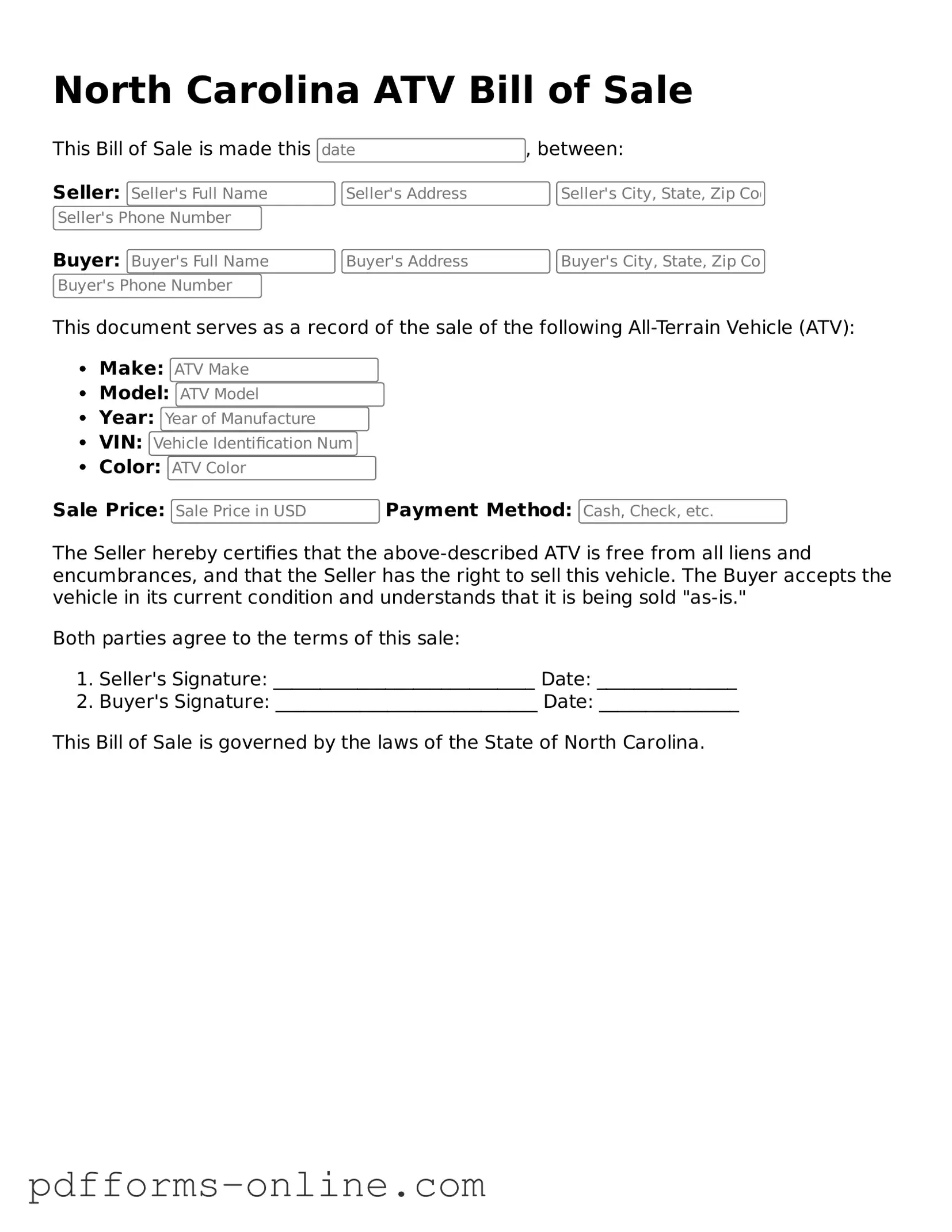The North Carolina ATV Bill of Sale form shares similarities with the general Vehicle Bill of Sale. Both documents serve as proof of transfer of ownership for a motorized vehicle. They detail the buyer and seller's information, including names, addresses, and signatures. Additionally, they outline the specifics of the vehicle, such as make, model, year, and Vehicle Identification Number (VIN). This ensures that both parties have a clear understanding of the transaction, protecting their interests and providing a legal record of the sale.
If you're exploring options for delegating authority, a valuable resource is the formal approach to establishing a General Power of Attorney. This document enables a trusted individual to act on your behalf, safeguarding your interests in various matters.
Another document akin to the ATV Bill of Sale is the Boat Bill of Sale. Just like the ATV version, the Boat Bill of Sale is used to record the sale of a watercraft. It includes essential information about the boat, such as its registration number, hull identification number, and any accessories included in the sale. Both documents require the seller to affirm that they have the right to sell the item and that it is free from liens, thus safeguarding the buyer against future claims.
The Motorcycle Bill of Sale also parallels the ATV Bill of Sale in its purpose and structure. It acts as a formal agreement between the buyer and seller, detailing the motorcycle's specifications, such as make, model, and VIN. Both forms help establish a clear transfer of ownership and can be used for registration purposes. They provide protection to both parties by documenting the transaction and serving as evidence in case of disputes.
Similarly, the Snowmobile Bill of Sale is another document that mirrors the ATV Bill of Sale. Snowmobiles, like ATVs, are recreational vehicles that require a formal sale process. This document captures pertinent details about the snowmobile, including its model and registration information. Both forms emphasize the importance of a clear transaction, ensuring that buyers receive a legitimate title and sellers are protected from future liability.
The Trailer Bill of Sale is also comparable to the ATV Bill of Sale. Trailers, whether for recreational or utility purposes, require a formal transfer of ownership just like ATVs. This document includes details such as the trailer's make, model, and VIN, ensuring that all parties are aware of what is being sold. Both documents serve as a legal record that can be referenced for registration and ownership verification.
Finally, the Personal Property Bill of Sale can be considered similar to the ATV Bill of Sale. While it covers a broader range of items, it functions similarly by documenting the sale of personal property, including ATVs. This form includes the names of the buyer and seller, a description of the item, and the sale price. Both documents provide a safeguard for the buyer and seller, ensuring that the transaction is clear and legally recognized.
